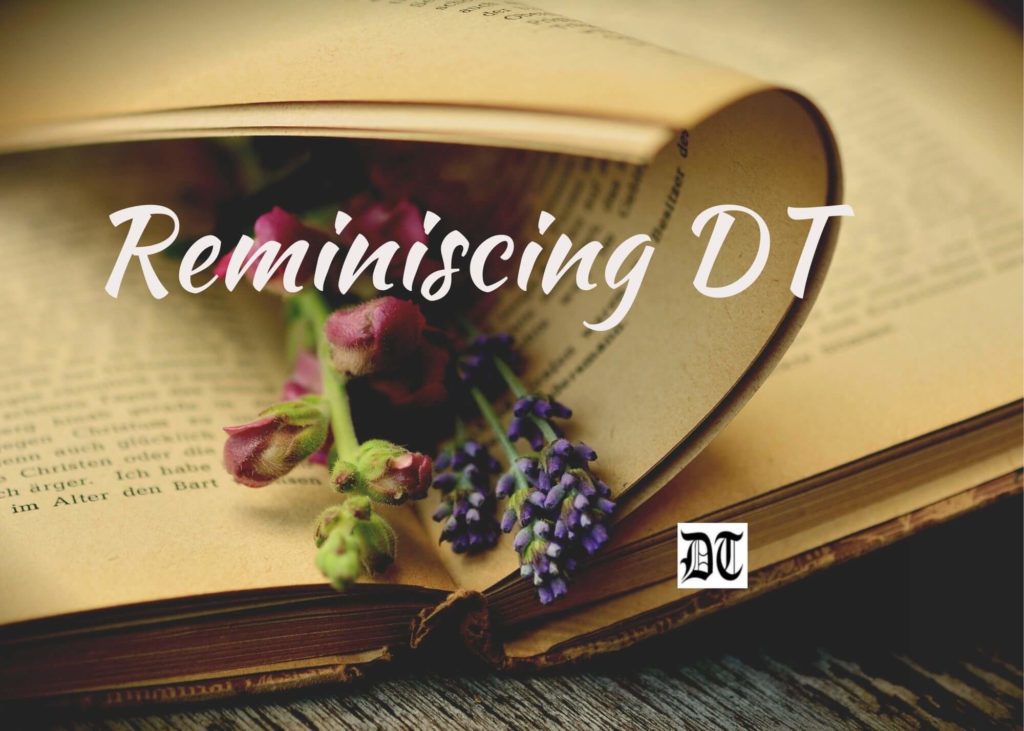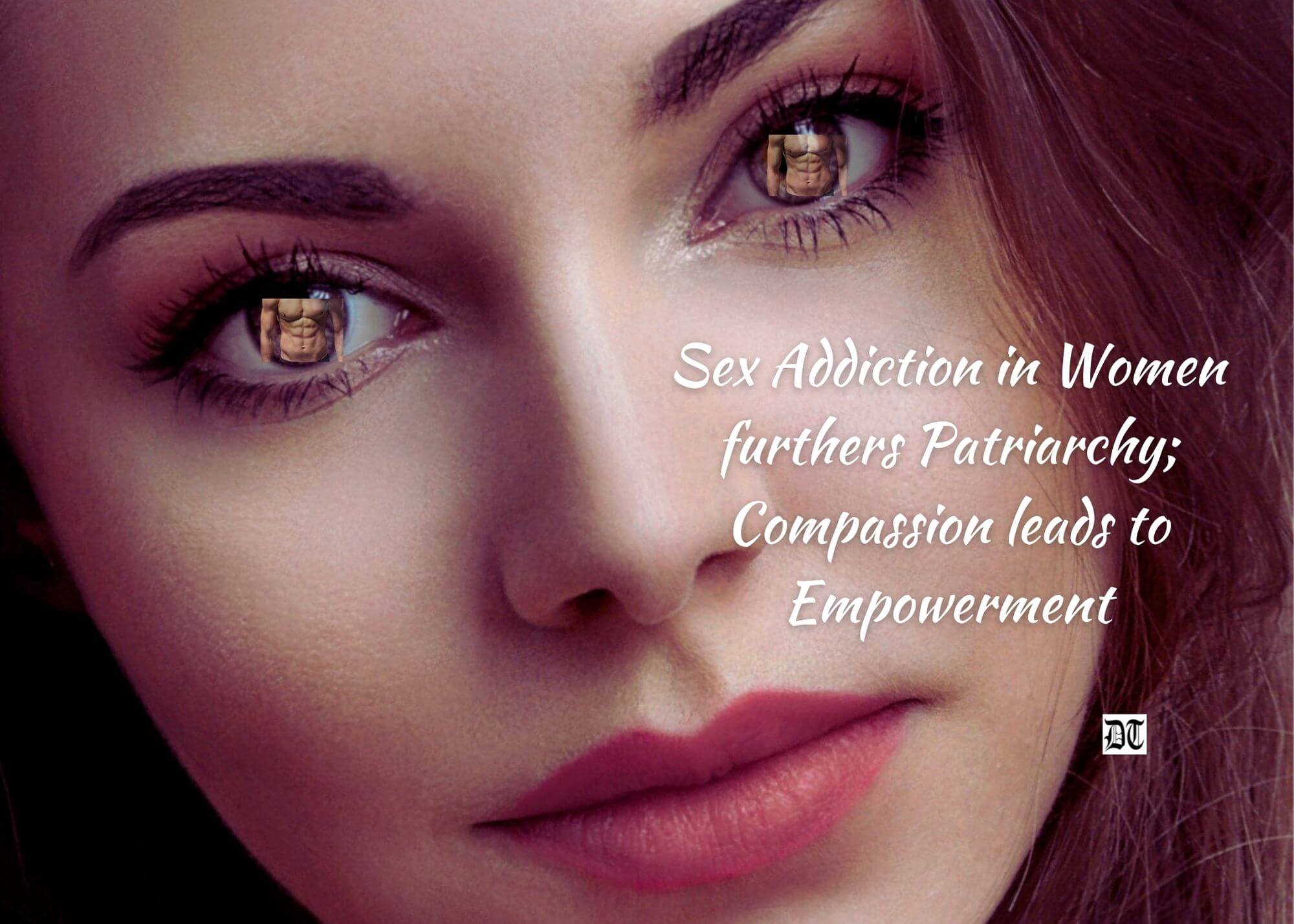Sex addiction is often viewed as an attachment or intimacy disorder. This paper examines sex addiction from a psycho-social perspective. The review includes current research from two major studies. One conducted by Robert Weiss (2016) that focuses on how sex addiction can be developed through trauma and the other by Rob Jackson (2004) that focuses on how early childhood abuse either physical or sexual can cause sex addiction in women. Jennifer Schneider (1991) wrote an article, How to Recognise Signs of Sexual Addiction that focuses on how the families of sex addicts have a profound effect in regards to contributing to sex addiction. Finally, the larger sociocultural attitudes and ideologies about sex addiction in women are addressed in Rob Jackson’s article on Pure Intimacy: God’s Design for Sex (2004). Sex addiction furthers the evil designs of patriarchy. Acceptance, understanding, love and compassion hold the key to women’s empowerment, reasons Chhavi, a Seattle-based student of communication, in the special feature on International Women’s Day, exclusively for Different Truths.

Women have long been overlooked and disregarded in terms of addictive behaviors such as gambling, alcohol, drugs, smoking, sex, etc. When we talk about sexual addiction, we tend to think of it strictly as a male issue because men are more sexually expressive in recognizable ways. But women too can and do suffer from addictive behaviors such as sex. The underlying problem behind this issue is the cultural reference that when a man is called a “stud” he is able to happily talk about his sexual exploits. But a woman is culturally referenced as a “slut” for reasons of shame if engaged in similar kinds of sexual activity.
Discrimination is an integral part of the patriarchy. Woman’s body is meant to please men. But, she is victimised for being a sex addict. Shame and condemnation is her share alone. These reasons of shame and prejudice cause women with sexual behavior problems to be less likely to reach out for help.
This article consists of three sections: Micro, Mezzo and Macro to look at this issue. The Micro section will examinewhat causes sexual addiction in women. The Mezzo will look at how forms of abuse, trauma, and adverse childhood experiences such as physical or sexual abuse escaped boredom by compulsively having sex, and finally the Macro section will describe the societal viewpoint of sex addiction in women.
Micro: Sex addiction can be defined as a compulsive and impulsive preoccupation of a person with sexual fantasies and behaviors to such an extent that it starts to interfere with productivity at work, home or school, physical safety and interpersonal relationships. Sex addiction is so destructive in its physical and emotional sense that it is often accompanied by other addictions such as substance abuse, gambling or eating disorders (Weiss, 2016). Sex addiction is not just about having sex; it is a craving for intimacy. It uses the same mechanism as any other addiction (Jackson, 2004). Highly pleasurable chemicals like dopamine, adrenaline, oxytocin, serotonin and endorphins become active causing a strong neurochemical rush in the brain during sexual or romantic encounters. Endorphins in particular, has a very powerful effect that it can regulate mood changes following sexual release. Thus, repeated exposure of such a chemical can lead to a point of needing “more” of this chemical to feel “normal.” During the times of childhood trauma or profound trauma, women suffering from stress and anxiety can use that neurochemical response to get relief from stress and emotional pain. The impulsive and compulsive need of reliving those pleasurable fantasies develops an addictive cycle of sex to get relief from physical or emotional pain (Weiss, 2016).
Mezzo: Sex addiction in women can be caused due to physical, emotional, or sexual abuse, physical or emotional abandonment such as childhood neglect, or other forms of trauma, along with mental health issues such as attachment or intimacy disorders (Weiss, 2016). Sex addicts are often seen to come from dysfunctional families with parents that are abusive, emotionally unavailable, chemically dependent, compulsive gamblers, or sexually addictive (Schneider, 1991). Sex addicts, especially women, are often exposed to sexually explicit behaviors or repeated exposure to sexual comments by one or more adults in the household or in their surroundings (Schneider, 1991). Such factors can develop trauma through lacking appropriate awareness of adolescent sexuality during childhood or over-emphasis on sexuality early on (Garzon, 2014). Dr. Carney’s research points that 1 in 5 women are seeking therapy for sex addiction in general population (Jackson, 2004). Research indicates that sexually abused women might abstain from engaging in romantic relationships, for fear of being emotionally vulnerable and intimate with another person. Such an insecurity and doubt leads to attachment or intimacy disorder (Jackson, 2004).
Macro: Society has been promoting an increased sexuality among young girls through hyper eroticised and inappropriate clothing intended to attract unnecessary attention to their bodies, suggestive of sexuality. These factors shape and alter their lives in the way they see and present themselves to others. It likewise adjusts how others respond to her. The strong emphasis on sexuality through overtly open and vulnerable media including visual depiction of womanised sexual acts in high definition, casual sex exemplified through the magazines, and the continuous availability and presence of massage parlors, escort services and street prostitution can likewise serve as gateways to sexual dependence (Jackson, 2004). Media also portrays female trauma survivors sexually acting out “like a man” by means of punishment, bondage, compulsively and privately meeting needs to give themselves a sense of relief from emotional pain (O’Hara, 2012).
Sex addiction is a real and serious problem. Sex addiction in women can be fueled through factors like childhood abuse, physical abandonment, lack of parental guidance, and a few others can fuel sex addiction in women. Research shows that women sexually “act out” to get relief from the painful emotions (O’Hara, 2012).The same research says that women sex addicts tend to manipulate relationships with the use of control, power and attention. Research also suggests that a sexually abused women tries to regain her innocence through means of punishment or compulsively meeting her sexual needs (Jackson, 2004).

Sex addiction is often used synonymously with hyper sexuality, compulsive sexual behaviors, and excessive sexual desire disorder. Individuals suffering from sex addiction self-medicate through various means, some of which include punishment, privately meeting sexual needs, and few others. Therefore, a treatment involving techniques tailored towards the different dynamics of the individual’s needs, and affirming them with words of love and care would help these individuals live wholesome and more empowered lives in society.
When we talk about women empowerment, we sometimes contradict ourselves when we see a woman being sexually, physically, and emotionally abused. As a society run by patriarchal values, we are in fact responsible for women becoming addicts in the first place. We promote sexuality through inappropriate clothing to attract unnecessary attention to the women bodies. And, we also tend to expose ourselves to overtly open and vulnerable media, visually depicting womanized acts, such as bondage that portrays women as helpless and in dire need to relieve themselves from emotional pain caused due to abandonment by dysfunctional families, attachment or intimacy disorders, and exposure to explicit sexual comments made by families.
Therefore, it is our collective responsibility that we advocate for women empowerment to improve the quality of life for them, demonstrate gender diversity and equality, and respect and support them by ensuring that they are equally included in our society for their talents, skills, and energies.
References
Garzon, J. (2014, April 7). Sex addiction: A response to trauma (R. T. Muller,
Ed.). Retrieved from Psychology Today website:
https://www.psychologytoday.com/blog/talking-about-trauma/201404/
sex-addiction-response-trauma
Jackson, R. (2004). Pure intimacy: God’s design for sex. Retrieved from Pure
Intimacy website: http://www.pureintimacy.org/h/
help-for-female-sex-addicts/
O’Hara, S. (2012). How are female sex addicts different from males? Retrieved
from http://psychcentral.com/blog/archives/2012/06/01/
how-are-female-sex-addicts-different-from-males/
Schneider, J. P. (1991, November 1). How to recognize the signs of sexual
addiction. Retrieved from http://www.jenniferschneider.com/articles/
recognize.html
Weiss, R. (2016). Sex addiction and intimacy disorders in women. Retrieved from
http://www.robertweissmsw.com/about-sex-addiction/
sex-addiction-and-intimacy-disorders-in-women/
Picture design by Anumita Roy, Different Truths






 By
By
 By
By